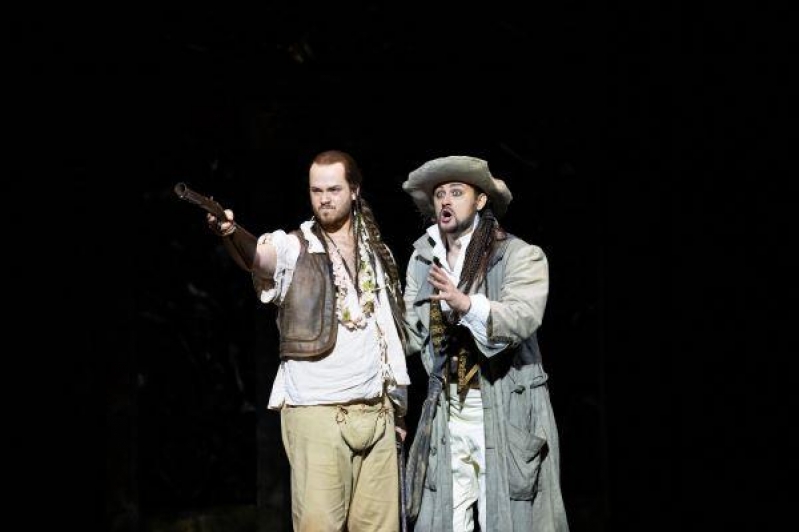
Our Spring Season opens next month with Mozart's comic opera, Così fan tutte, which sees a schoolteacher secretly involve four students in a series of experiments designed to deceive and teach them that life and love doesn't always go the way you've planned.
Mozart’s theme of partner swapping might take a cynical swipe at men and women as, when tempted by a bet, two men hatch a plot to disguise themselves to try and seduce each other’s fiancées, but this is not the only time we’ve seen disguises and schemes change the course of love in opera.
Another of Mozart’s operas, Don Giovanni, based on the legend of Don Juan, who devoted his life to seducing females also features identity swapping. Don Giovanni attempts to seduce Elvira’s maid through an elaborate ruse involving switching clothes with his servant Leporello and a feinted romance with Elvira. After several cases of mistaken identity, including a fight, Giovanni and Leporello eventually meet up, just before Don Giovanni meets his end.

The Gondoliers, a comic opera composed by Arthur Sullivan, is a satirical tale of intrigue and mistaken identities. Casilda discovers she was married off as a baby by her destitute parents to the infant son of the King of Barataria. Marco and Giuseppe are two gondoliers but, due to a mix-up at birth, one of them is believed to be the heir to the Barataria throne. However, Casilda has always been in love with another, the Duke’s attendant Luis who, it is discovered, is the actual long-lost heir to the throne of Barataria.
Johann Strauss II’s Die Fledermaus, centres around a masquerade ball where everyone is disguised. Rosalinde is looking forward to a few days carefree time with her lover, Alfred, while her husband, Eisenstein, is facing time in prison. However, Eisenstein's friend, Falke, persuades him to go to Prince Orlofsky’s party instead. When the prison governor, Frank, comes to take Eisenstein away, Alfred is mistaken for Rosalinde’s husband. Rosalinde decides to go to the Prince’s party and even her chambermaid, Adele, is there after convincing Rosalinde that she needed a night off to care for her sick Aunt. Even the prison warden Frank decides to join the party. With all these intertwining tales and masked faces, it’s no wonder that the story delivers some of the funniest cases of mistaken identity in opera. However, when all the guests turn up at the prison, the truth is revealed and all forgiven.
Giannini’s The Taming of the Shrew is based on William Shakespeare's play of the same name. Several eligible bachelors wish to claim the hand of Bianca, the youngest daughter of the wealthy Baptista. But Baptista has stated that Bianca will not be wed before her older sister, Katharine. Though hostile at first, Katharine is eventually wooed by Petruchio. We also see the competition between Hortensio, Gremio, and Lucentio for Bianca’s hand in marriage play out. Lucentio exchanges places with his servant, Tranio, in order to get closer to her. Tranio poses as the son of a wealthy gentleman and steps into the competition for Bianca’s hand, fooling Baptista, who formally arranges for the marriage to proceed. Tranio’s tricks are eventually exposed, but Lucentio and Bianca have already married in secret.
To see what disguises our two leading men come up with this Spring, join us for Così fan tutte as we bring ‘the school for lovers’ to life on stages in Cardiff, Llandudno, Southampton, Oxford, Bristol and Birmingham.



